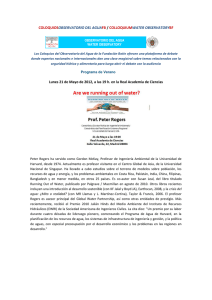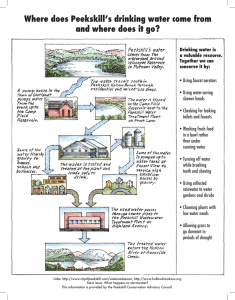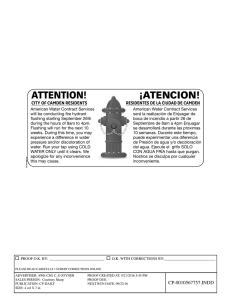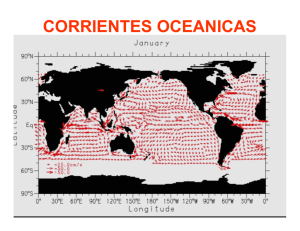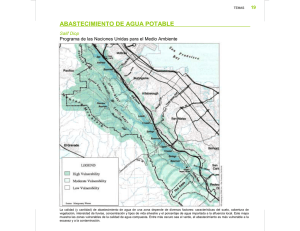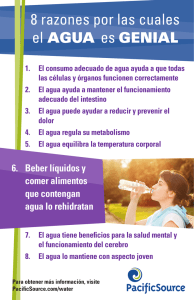RESUMEN ABSTRACT
Anuncio
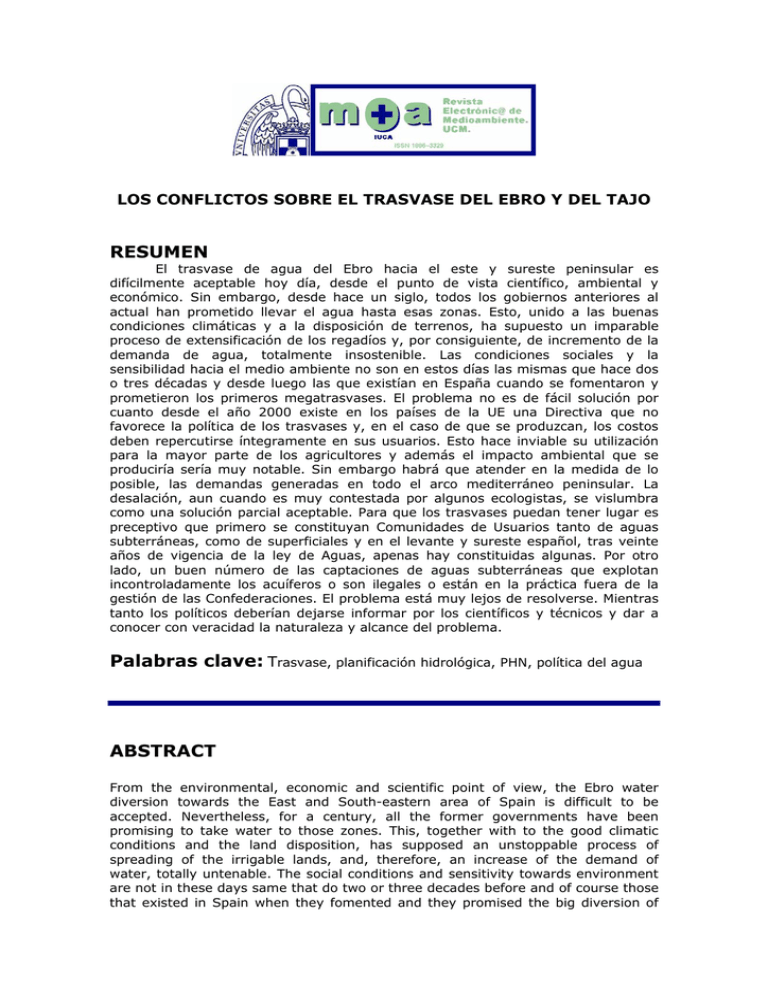
LOS CONFLICTOS SOBRE EL TRASVASE DEL EBRO Y DEL TAJO RESUMEN El trasvase de agua del Ebro hacia el este y sureste peninsular es difícilmente aceptable hoy día, desde el punto de vista científico, ambiental y económico. Sin embargo, desde hace un siglo, todos los gobiernos anteriores al actual han prometido llevar el agua hasta esas zonas. Esto, unido a las buenas condiciones climáticas y a la disposición de terrenos, ha supuesto un imparable proceso de extensificación de los regadíos y, por consiguiente, de incremento de la demanda de agua, totalmente insostenible. Las condiciones sociales y la sensibilidad hacia el medio ambiente no son en estos días las mismas que hace dos o tres décadas y desde luego las que existían en España cuando se fomentaron y prometieron los primeros megatrasvases. El problema no es de fácil solución por cuanto desde el año 2000 existe en los países de la UE una Directiva que no favorece la política de los trasvases y, en el caso de que se produzcan, los costos deben repercutirse íntegramente en sus usuarios. Esto hace inviable su utilización para la mayor parte de los agricultores y además el impacto ambiental que se produciría sería muy notable. Sin embargo habrá que atender en la medida de lo posible, las demandas generadas en todo el arco mediterráneo peninsular. La desalación, aun cuando es muy contestada por algunos ecologistas, se vislumbra como una solución parcial aceptable. Para que los trasvases puedan tener lugar es preceptivo que primero se constituyan Comunidades de Usuarios tanto de aguas subterráneas, como de superficiales y en el levante y sureste español, tras veinte años de vigencia de la ley de Aguas, apenas hay constituidas algunas. Por otro lado, un buen número de las captaciones de aguas subterráneas que explotan incontroladamente los acuíferos o son ilegales o están en la práctica fuera de la gestión de las Confederaciones. El problema está muy lejos de resolverse. Mientras tanto los políticos deberían dejarse informar por los científicos y técnicos y dar a conocer con veracidad la naturaleza y alcance del problema. Palabras clave: Trasvase, planificación hidrológica, PHN, política del agua ABSTRACT From the environmental, economic and scientific point of view, the Ebro water diversion towards the East and South-eastern area of Spain is difficult to be accepted. Nevertheless, for a century, all the former governments have been promising to take water to those zones. This, together with to the good climatic conditions and the land disposition, has supposed an unstoppable process of spreading of the irrigable lands, and, therefore, an increase of the demand of water, totally untenable. The social conditions and sensitivity towards environment are not in these days same that do two or three decades before and of course those that existed in Spain when they fomented and they promised the big diversion of water. The problem is not of easy solution because from year 2000 a brand new Water Frame Directive exists in the countries of the UE who does not favours the policy of water transferences and, in case they take place, the costs must be supported completely by the users. The water use by the farmers probably will be nonviable. In addition, the environmental impact that would take place would be very remarkable. Nevertheless it will be necessary, as far as possible, to take care of the demands generated in all the Mediterranean area. The desalination, even though is very unaccepted by some ecologists, seems to be an acceptable partial solution. Before the water transferences can take place seems to be necessary that a number of Groundwater User Communities must be launched such the Spanish Water Act envisaged. After twenty years of application of the Water Act none has been constituted. On the other hand, a good number of the boreholes and wells are illegal or are actually outside of the management of the Water Authority. The problem is very far from being solved. Meanwhile the politicians would have to be prone to assessment of the scientists and technicians and inform with veracity to the population the nature and reaches of the problem. Keywords: Water diversion, Hydrological Plan, water policy.

